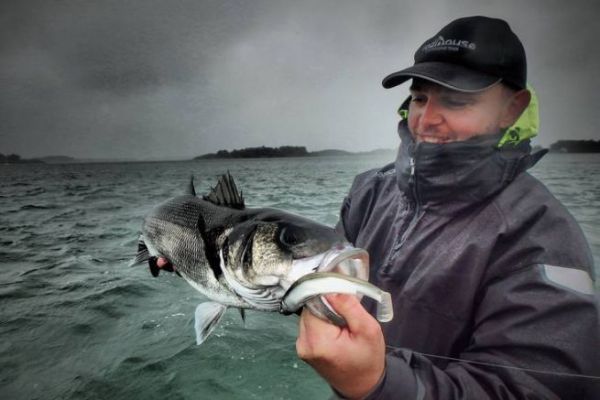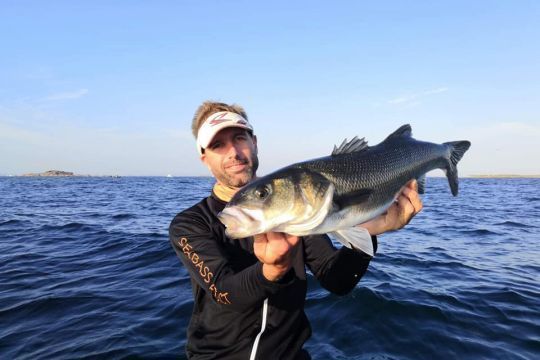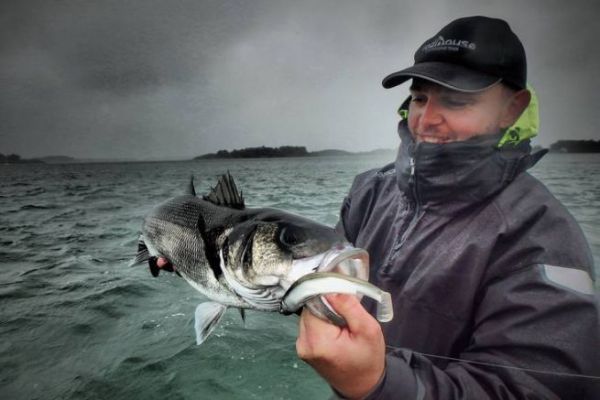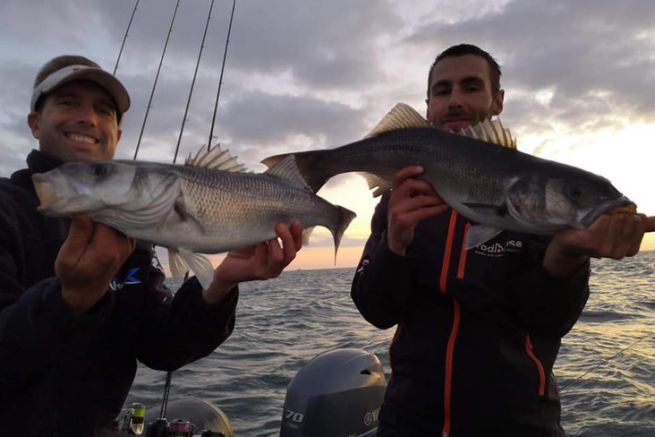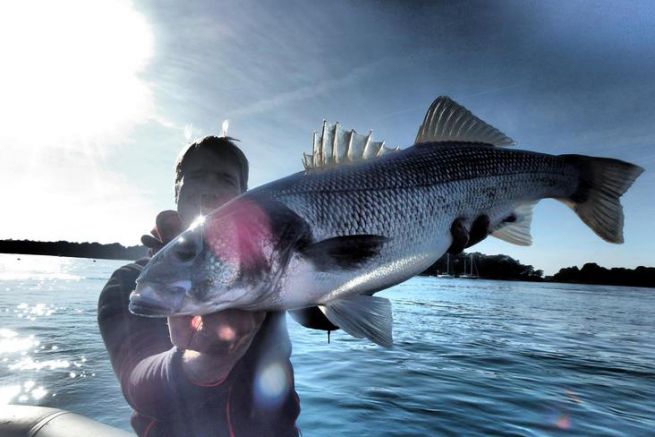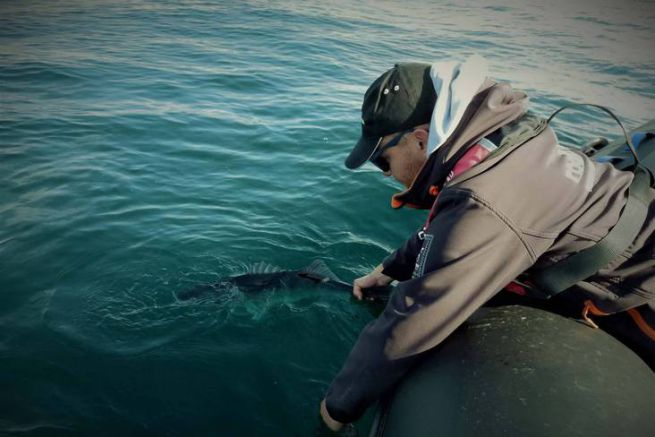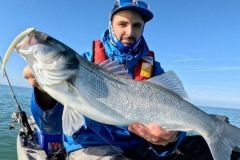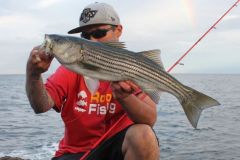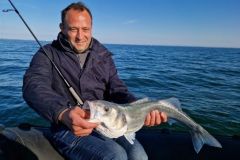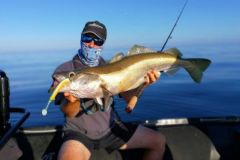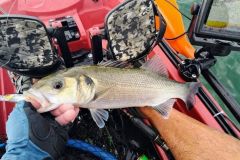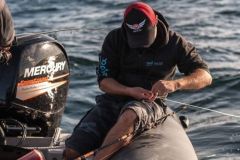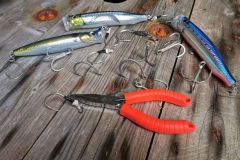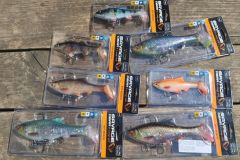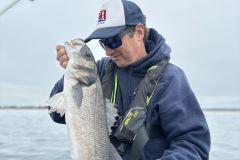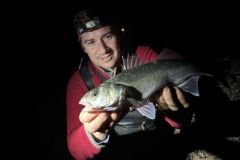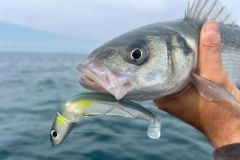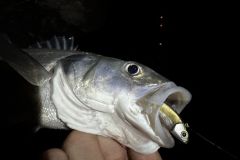Line fishing, although it involves a few subtleties, consists in casting and reeling in your soft lure continuously on the reel. It's a very effective and simple approach. So it's accessible to everyone.
A natural approach
While we often use pull or fly fishing to catch sea bass with soft lures, a fish moving up and down in the water is probably not the most natural thing to predators. In fact, forage fish often either peck at the bottom or swim at a constant water height and speed. Bringing the lure in line seems to be the most mimetic presentation available.
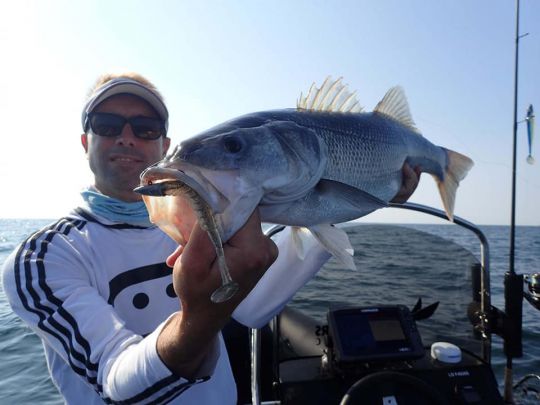
Not always obvious
Having established and accepted this fact, linear fishing seems obvious. And yet the answer has been in front of us for a long time, without us even recognizing it... How many of us have caught bass on the last few meters of retrieve, after having animated our lure for a long time and in vain, bringing it back quickly to cast again? Is it chance? A stroke of luck? I don't think so. It's simply a simple pattern that we didn't see or didn't want to see.
Particularly effective on active sea bass
When sea bass are in full feeding mode, this presentation is particularly effective, especially between two waters. In fact, they will easily climb into the water layer or surface to pursue a fast-moving lure. So, while bites are often required during pause phases when fishing on the pull or on the fly, they are not necessary when they are on the hunt and a continuous retrieve is all that is needed.
However, if they are less active, staying close to the bottom, it proves just as productive.
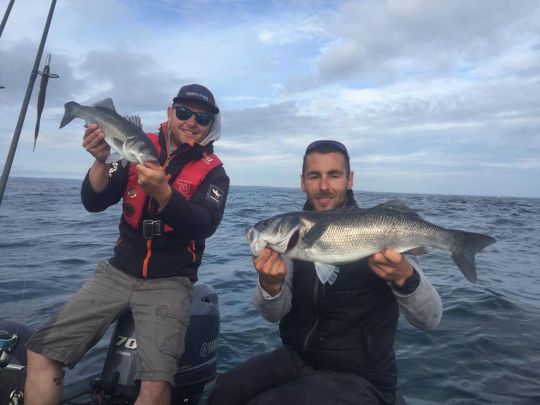
Ideal for beginners
Line fishing doesn't require any special technical skills, and you don't need to master the tension of your lure or feel its contact with the bottom, so it's an ideal way to start bass fishing with lures.
However, it's not just for neophytes, and many experienced anglers use it often and know how to exploit all its subtleties.
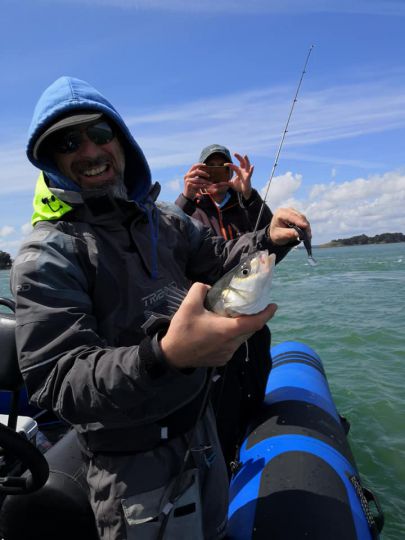
Heavy fishing pressure
Some days, line fishing is far more effective than other techniques, if not the only one that works. Although it's difficult to take all the parameters into account, I tend to think that when fishing pressure is high and makes sea bass particularly wary, this gentle, natural approach makes it easier to fool them.
Bar, but not only...
Line fishing is therefore particularly effective for sea bass, but there will be many surprises and it is capable of attracting all species of pelagic predators, i.e. those that live in open water. For benthic, substrate-dependent species, other approaches will be far more appropriate and effective.
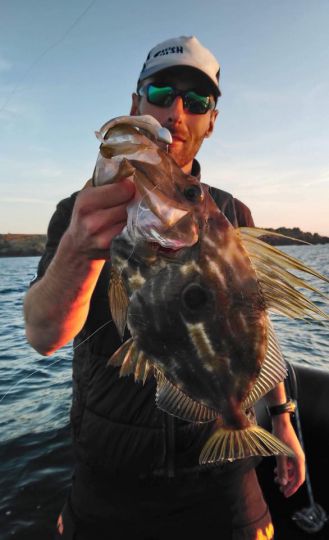

 /
/ 